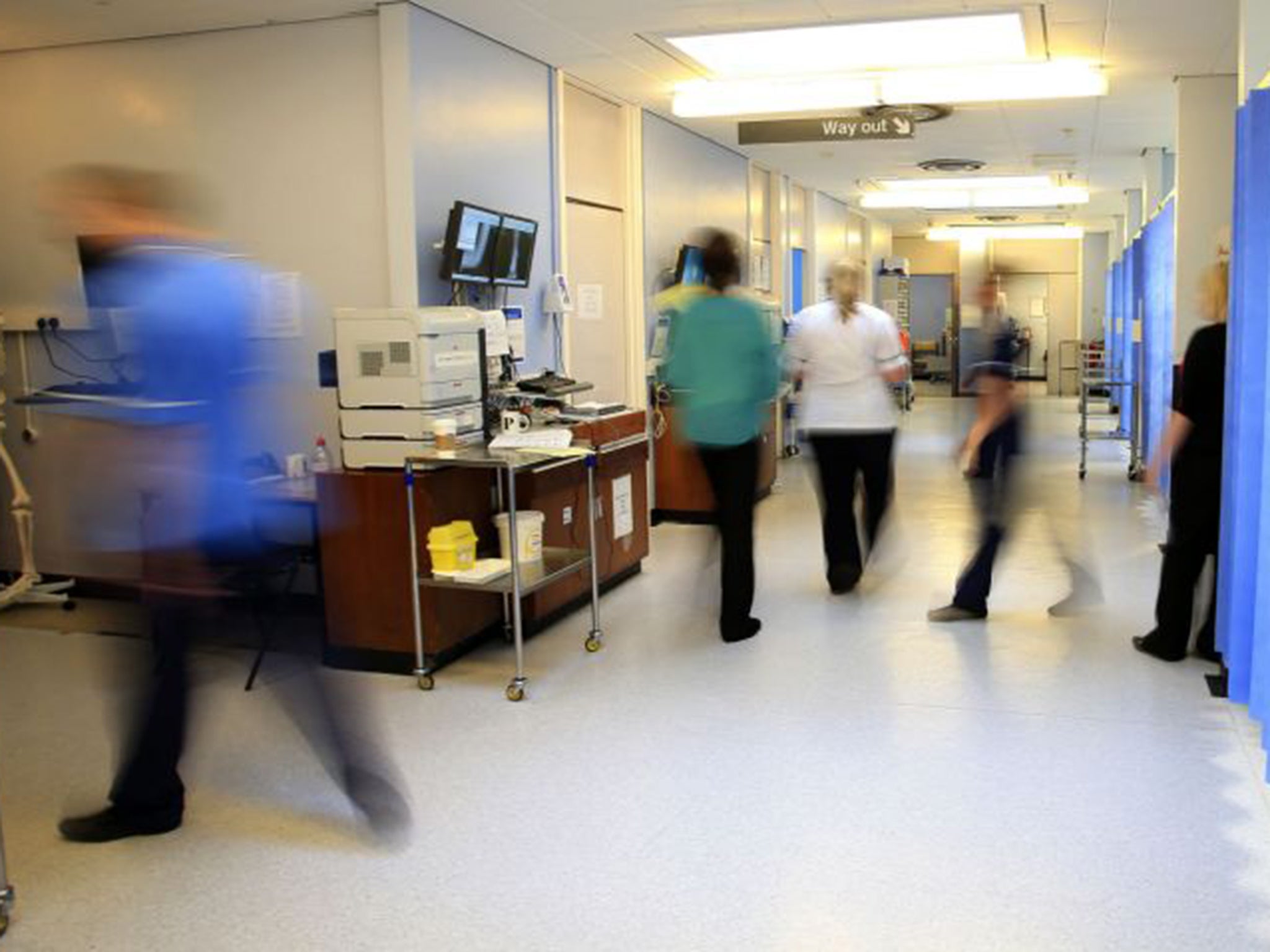Smart Tories know they can’t ignore England’s attachment to the NHS
Inside Westminster: Nothing has changed since Nigel Lawson, the then Chancellor, described the NHS in 1992 as 'the nearest thing the English have to religion'


"It’s a reflection of us as a society. We care about each other," one person said of the National Health Service.
"The soul of Britain," said another. They were among 80 people taking part in a one-day discussion about health staged by Lord Ashcroft, the pollster and former Conservative deputy chairman.
Nothing has changed since Nigel Lawson, the then Chancellor, described the NHS in 1992 as “the nearest thing the English have to religion”.
Today’s Tory ministers do not dispute the nation’s emotional attachment to it. They hope the daily headlines about the pressures in accident and emergency departments have peaked, so they can fight the May general election on their favoured economic turf. But, as yesterday’s figures showed, there is little sign of that yet.
Modernisers who were part of the Cameron project to detoxify the Tories are worried, and are right to be. Labour has been screaming about NHS cuts and privatisation for months. In isolation, political point-scoring would be dismissed by most voters as just that. But daily media coverage of the troubles on the NHS front line make Labour’s attacks more plausible – and the combined effect is toxic for the Tories.
This month, health rose to the top of people’s concerns when asked to name the most important issues facing the country, overtaking the economy and immigration. If that is still the case in May, the Tories will be in trouble.
Tory modernisers fear their party’s tactic of trying to turn the NHS into an economic issue will not work. As one senior MP told me: “It comes down to one question: do people trust us to protect the NHS? My worry is that they don’t.”
Such people are privately pressing for a change of strategy. They were alarmed this week when David Cameron did not include health on his list of six election themes "at the heart" of the Tory manifesto – the budget deficit, jobs, taxes, education, housing and retirement. Tory officials insist he always intended to talk about health "in the context of the deficit".
This reflects the hard-nosed approach of Lynton Crosby, the Tories' Australian election strategist.
He has advised ministers to always bracket the NHS and the deficit together –and, similarly, to talk about immigration in relation to welfare.
He argues that talking about health in isolation would help Labour, while a focus on immigration would boost Ukip. "It’s about speaking about our strengths, not our weaknesses," one Tory source explained.
Some Tory backbenchers are not convinced. They fear their party will be seen as a "one trick pony" as it bores voters to death by harping on about the "long-term economic plan".
Cameroon modernisers want the Prime Minister to re-run the personal campaign on the NHS which neutralised the issue in the run-up to the 2010 election.

Then he named his top three priorities as "NHS" and spoke movingly about his family’s reliance on it after the death of his disabled son Ivan. The Tories ran a giant airbrushed poster of him saying: "I’ll cut the deficit, not the NHS."
Most people do not think Cameron has broken that promise. A poll of 20,000 people by Lord Ashcroft found that 41 per cent believed NHS funding had risen in the past five years, while 35 per cent said it had fallen and 24 per cent thought it has stayed about the same.
However, 51 per cent thought the NHS had got worse, 34 per cent said it stayed the same, and 15 per cent said it got better. Interestingly, 56 per cent of people gave high marks (eight out of 10 or more) for their most recent personal experience of the NHS – but only 30 per said the same for their view of health services in the country as a whole.
This “perception gap” could be dangerous for Cameron with an election coming.
Several ministers regard the NHS shake-up introduced by Andrew Lansley, the former Health Secretary, as the Coalition Government’s biggest mistake. The reforms were not communicated properly and many voters thought they were about cuts.
“They revived people’s latent fears that we don’t really care about the NHS,” one senior Tory admitted, adding that the party would be in a much better place if the reassuring Jeremy Hunt had been Health Secretary since 2010.
Calls for Cameron to give health a higher profile will be resisted by Crosby, whose brief is to instil the discipline the Tories lacked in its chaotic campaign in 2010.

His Tory critics admit it may be too late to change the economic focus. But they worry that his skills which worked in Australia – where he helped John Howard win four elections – may not be transferable. They point out that Australia has compulsory voting, and that its elections usually boil down to a binary choice between the (conservative) Liberal and Labor parties.
Britain used to be like that, when nine out of 10 people voted either Tory or Labour, but is now in an era of multi-party politics with the rise of Ukip, the Greens and the SNP. Crosby allies insist that, as May approaches, the choice for many people will become “Cameron or Miliband?” since only these two can become prime minister.
It won’t all be plain sailing for Labour on health. Ed Miliband’s inability to deny that he spoke privately about Labour’s need to “weaponise” the NHS showed the danger of the party’s attacks backfiring. Labour is lucky that events in the hospitals have weaponised the issue for it at a critical time.
Labour has promised to spend £2.5bn more than the Tories, whatever they allocate, although the Liberal Democrats are the only party to pledge the £8bn sought by Simon Stevens, the chief executive of NHS England. But the public do not think money is the only answer; reform is needed too.
Labour has lined up a flurry of policy announcements on health this month, including on carers, public health and mental health. Its biggest test will be a “10-year plan” to be unveiled by Andy Burnham, the shadow Health Secretary, who needs to put flesh on the bones of his vital proposal to integrate health and social care.
Blairites fear the media frenzy on health will persuade Miliband to remain in his NHS comfort zone rather than tackle Labour’s credibility problem on the deficit. Miliband aides insist that they will talk about health and the economy, spelling out reforms to improve care and save money to make the NHS sustainable in the long term.
For now, the tide of events is with Labour. Of course, other issues may come to the fore by May. A Greek exit from the euro would put the spotlight back on the economy, to the Tories’ advantage. But the Tories have a health problem and it won’t go away.
Not talking directly about the NHS is no longer an option.

Join our commenting forum
Join thought-provoking conversations, follow other Independent readers and see their replies